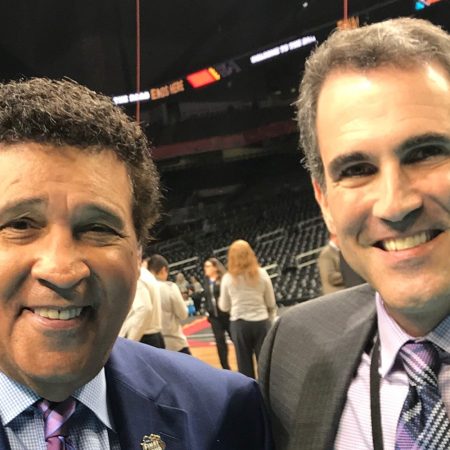We’re proud to present Ask Esther Perel, in which critically acclaimed sex therapist Esther Perel answers your questions about sex and relationships. Have a question? Just ask Esther Perel.
How honest are you, sexually speaking?
In a relationship, it’s OK (and expected) for two partners to have different desires. It’s how you talk about them — well, how honestly you talk about them, really — that’s truly important.
We asked New York Times bestseller and acclaimed therapist Esther Perel about why communicating our desires is not as simple as we’d like, and how a couple suffering from a lack of open dialogue can go about improving things.
Like any new language one learns, learning the basic verbs is step number one.
There are the seven essential verbs you need to know to begin speaking the language of sexuality: to ask, to take, to give, to receive, to share, to imagine and to refuse.
Do you feel comfortable asking for what you want? Can you allow your partner to give it to you, and accept a more receptive stance? How easy is it for you to share your fantasies with sexual partners?
Men frequently tell me they find receiving the most challenging — as it elicits vulnerability and passivity, and counters stereotypical male socialization. Some only like receiving if they’re paying for it: they’re essentially paying for the right to be selfish. And some guys are reluctant to take, because they don’t want to feel predatory. That said, the less they care about their partner, the easier it may be for them to take.
Choose one verb, and think about how this action plays a role in your own sexual encounters. If you never give, ask your partner if there is something they would like.
Talk about your desires before and after sex, not only when you’re in the heat of the action.
Communicating about your wants, fears and anxieties, and understanding those of your partner are crucial to erotic intimacy. These conversations are much better when you’re not experiencing the pressure, the expectations and the performance anxiety that can reign supreme during sex. You may think this is a tough conversation to bring up over brunch … but it’s even more difficult, (and less effective) while you’re in the act. Ironically, sex is better discussed outside the bedroom.
In the bedroom, it’s OK to use nonverbal communication.
I value talking (after all, I’m a therapist), but we also speak with our bodies and with our actions. If sharing verbally is extremely difficult for you, try starting by showing your partner, non-verbally, what you like. Gently take his or her hand, guide it around you and put it where you like it. Alternatively, try writing to your partner. I have seen great success when someone expresses themselves via the written word.
When you do talk about your turn-ons, know that you’re not being “strange.”
Men are often afraid of being hurt if they express their desires — they have an anxiety of not being accepted or inducing disgust. But you should talk with your partner about what you want to do, even if you never do any of what you talk about. Knowing that your partner knows this about you and accepts you is an intimate revelation on its own. And there’s a difference between telling someone what you want to do and asking them to do it.
When you start a sexual dialogue, ask questions.
To begin a conversation, say, “I realized I’ve never talked about our sexual experience together.” State that honesty is important to you, and your partner’s pleasure truly matters. Ask questions: How was it? Do you like some things more than others? Are there things you want to try? What kind of touch do you enjoy? These are easier types of conversations to have. It gives you a sexual blueprint of what your partner prefers.
There are ways to say “no.”
If you say “no” because an experience is unknown or you’re not a risk taker, you may need to stretch your boundaries a bit. Try it once. You might like it. If you say you won’t do something, but won’t give a reason, it can devolve into power dynamics. The beauty of talking about doing something new is processing it, and the anticipation. It’s often just as rich an experience as actually doing it.
And even if what you end up doing is not to your liking, it can end up being funny — that in itself is a dialogue that is sexy.
It’s about rejection. On both sides.
Men usually have to initiate sex. Rejection is a major part of their lives. And women think men always want sex, and may take it personally when they’re turned down. Sexual rejection is more painful than other kinds of rejection: there’s an emotional nakedness there. It makes us feel unloved or undesirable, and it can make men feel like a dirty little boy or a voracious creep.
So continue the dialogue. Why did your partner say no? Is it categorical? Is it “No today, but maybe/yes tomorrow?” Is your request evoking some sort of negative reaction, like fear, disgust, or trepidation? Stay curious. Stay open to listening. Stay in the conversation — this isn’t about setting a goal, but understanding why your partner had that reaction.
And if they say “no,” that’s fine. If they always say “no,” then you surely are in need of a good chat.
Esther Perel is the best-selling author of Mating in Captivity: Unlocking Erotic Intelligence, a practicing psychotherapist, celebrated speaker and organizational consultant to Fortune 500 companies. The New York Times, in a cover story, named her the most important game-changer on sexuality and relationships since Dr. Ruth. Have a question? Ask Esther Perel.
Want more advice? Esther Perel launched a free video series on the topic of desire, entitled “Rekindling Desire.” You can access the four videos here.
Main image via Metro-Goldwyn-Mayer
Whether you’re looking to get into shape, or just get out of a funk, The Charge has got you covered. Sign up for our new wellness newsletter today.























